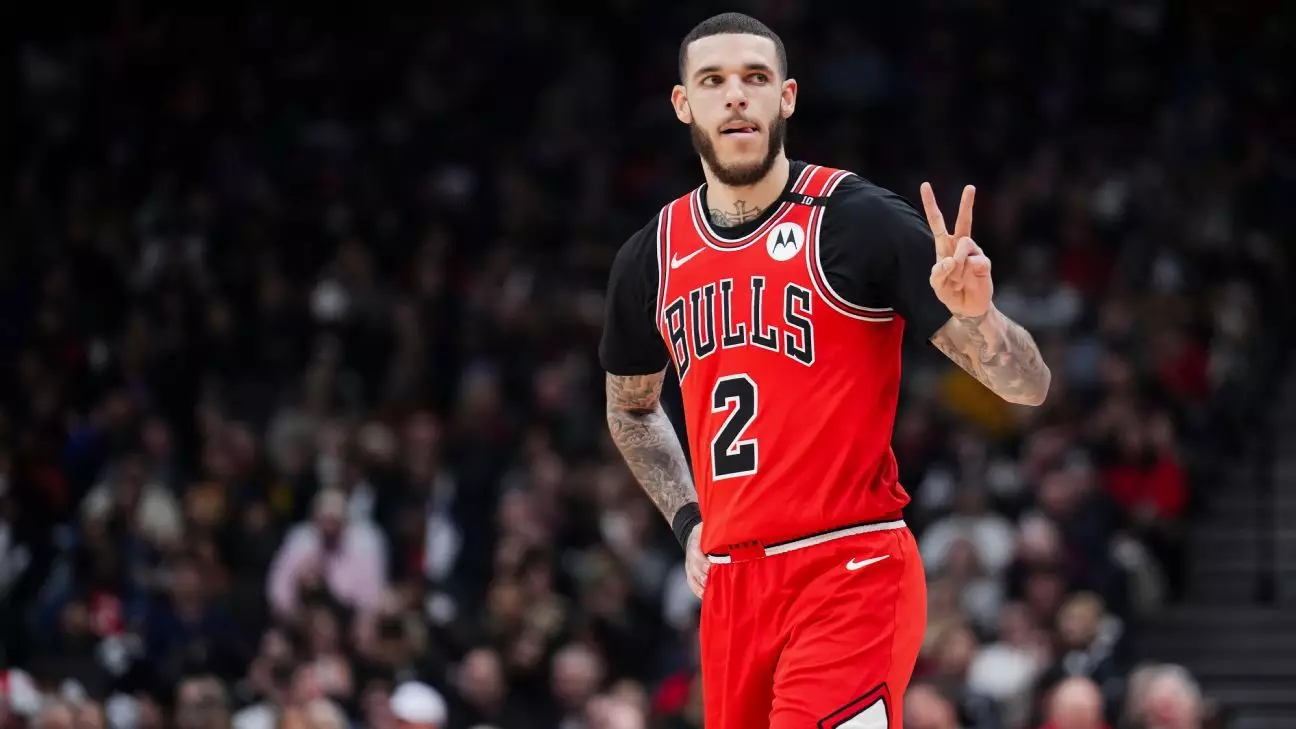In a profoundly moving moment that transcends the world of professional sports, Chicago Bulls guard Lonzo Ball recently met the family of Alex Reinhardt, a young man who tragically passed away at the tender age of 20. Alex’s legacy continues through the remarkable gift of life he provided as an organ donor; his knee cartilage was given to Ball after the athlete faced devastating injuries that sidelined him for two years. The convergence of life, loss, and gratitude encapsulated in this meeting conveys a powerful message that should not be underestimated.
Angie Reinhardt, Alex’s mother, conveyed the emotional complexity of such encounters. It’s a bittersweet experience—where joy and sorrow share a room, and the heaviness of grief is interwoven with the happiness of witnessing the impact of a loved one’s altruistic decision. There is something starkly poignant about this, as families grapple with the realities of premature loss while simultaneously celebrating the positive outcomes stemming from their loved ones’ tragic endings. For Angie and her family, that moment with Ball was cathartic, transforming the image of their son from a life cut short into a symbol of hope and healing for others.
The Power of Connection Through Adversity
The connection between Ball and Reinhardt illustrates a nuanced layer of human experience often overlooked—the stark reality that the world can be both cruel and beautifully generous at the same time. Here is a professional athlete who, due to circumstances beyond his control, found solace and a semblance of recovery through another’s sacrifice. It forces us to confront uncomfortable truths about the fragility of life and the critical importance of organ donation.
Angie shared how knowing that Alex’s donation is now helping someone succeed in the athletic arena gives her family a sense of purpose. It defies the conventional narrative of grief being solely a debilitating force; instead, it shines a light on how loss can inspire and create endless ripples of transformation. Ball’s journey with injury and recovery alongside the Reinhardt family’s emotional quest harmonizes beautifully, marking an intersection of pain and redemption.
The Legacy of Altruism in Sports and Beyond
Moreover, this event emphasizes a vital discourse surrounding organ donation awareness and the often unseen consequences of our choices, acts of selflessness that can impact lives far beyond our own. Ball is not just a sports icon; he has become a linchpin in fostering dialogue around the importance of such medical decisions. This moment is represents something far more significant than just a meet-and-greet; it is emblematic of a shifting cultural ethos within sports, where personal narratives and social responsibility start to redefine the role of athletes in society.
The larger implications here call for greater engagement from sports figures, urging them to leverage their platforms for critical causes like organ donation. Ball’s encounter with the Reinhardts serves as a rallying point for others who hold similar influence to address and normalize the conversation around giving life even in death. In a world often permeated with indifference, this story strums the strings of collective empathy and reminds us of our collective responsibility to one another, long after we leave the physical realm.
Ball’s successful recovery and the profound gesture of meeting Alex’s family enriches the landscape of sports with depth—prompting us not to merely applaud athletic prowess but to reinterpret what it authentically means to be a hero. In conveying a fresh perspective on mortality, altruism, and healing, this encounter opens a discourse that challenges us all to act with compassion and purpose in our everyday lives.

Leave a Reply